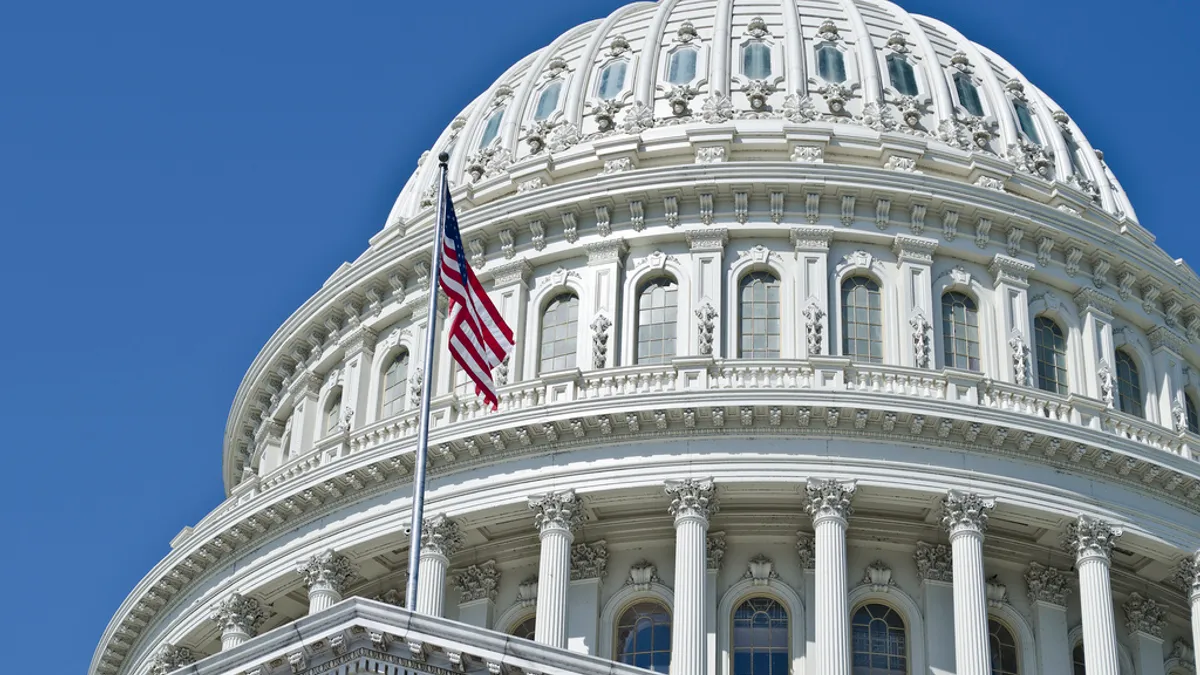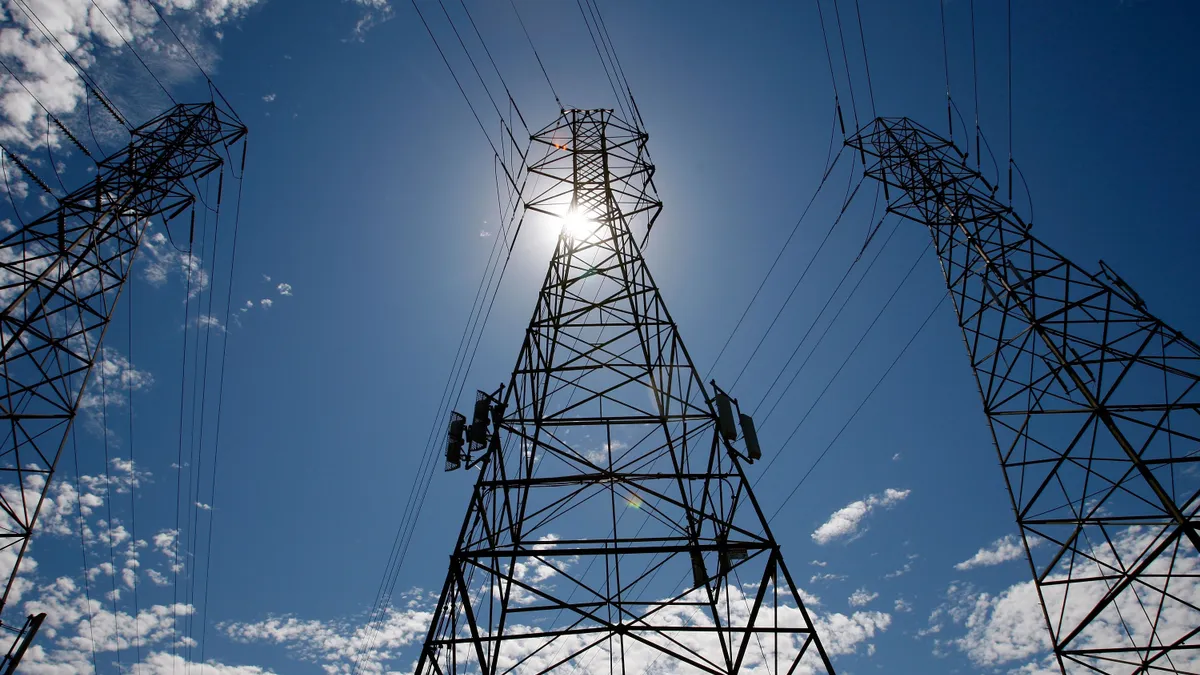Legislation that would clearly designate FERC's authority to regulate demand response in wholesale markets would be a "small fix," says the bill's sponsor — yet some in the industry see a complex battle ahead, should Congressional debate be taken up in earnest.
When an appeals court vacated FERC Order 745 earlier this year, the decision set in motion a series of legal challenges and possible outcomes that left the demand response industry unsure of how to move forward.
Now, Sen. Martin Heinrich (D-NM) has introduced legislation that would unambiguously charge FERC with regulating demand response in wholesale markets, but some supporters — including the White House — say they would prefer the resolution come through the courts first, if it can.
Background on the bill
According to Heinrich, the problem is the Federal Power Act, an 80 year-old piece of legislation written in an era when interstate sales of electricity were rare and regional power grids did not exist. Though the law gave FERC authority over matters affecting wholesale power rates, according to a statement by Heinrich there is "some question" whether Congress intended a reduction in power use to be considered on equal footing with the generation of power, "even though both clearly affect the rates consumers pay for power."
"This bill is a small fix but with big implications for growing the economy, and is central to slowing the effects of climate change and creating a healthier environment for future generations," Heinrich said.
Order 745 brought demand response under FERC jurisdiction and put those resources at parity with other resources in power markets. But when the court vacated FERC's order and then declined to hear an appeal — finding the commission had encroached on states' jurisdiction to regulate retail markets — First Energy Corp. sued to have demand response removed from the PJM capacity markets as well.
More recently, a group of New England generators petitioned FERC to disallow demand response resources from participating an ISO New England upcoming forward capacity auction.
First Energy spokesman Doug Colafella said the company is tracking the Heinrich bill and thinks demand response will remain a good tool for managing load, but "we believe the court decision in May was a good first step. Counter to what this bill is calling for, we don't believe demand response has a place in the wholesale energy markets."
A judicial or legislative fix?
Some supporters of FERC's authority to regulate demand response want the Office of the Solicitor General to appeal to the Supreme Court, and believe a legislative fix should be considered only second. Depending on how the bill is received, it could be altered and re-introduced in the next Congress, allowing time for backers to gather support.
John Podesta, Counselor to President Obama and architect of the administration's recent push on climate policy, says the White House is among those who believe FERC has the authority to regulate demand response. He told attendees at the National Summit on Smart Grid and Climate Change that the administration profoundly disagrees with the D.C. Circuit Court's ruling on Order 745.
"We think this is a very significant and mistaken decision and we’re hopeful that in time we can see it reversed," Podesta said.
The former Bill Clinton chief of staff said that the decision to appeal to the Supreme Court will be the Solicitor General's alone, but that the rest of the federal government is making their voices heard.
"Ultimately that’s the Solicitor General’s decision, but he's getting a lot of input about the importance of [Order 745] from colleagues in the White House and EPA and other federal departments," he said.
Asked by Utility Dive if the administration would support a legislative fix to the controversy over Order 745, Podesta said the White House has not yet reviewed Heinrich's bill completely. But, if the the High Court does not grant FERC the authority to regulate demand response, he said the administration would support Congressional solutions.
"If we can’t prevail in the court system and this decision continues to stand I think we’ll have to go back and look at an appropriate legislative fix," he said.
A big can of worms: Opening up the Federal Power Act
Podesta is not alone in hoping the courts clear up the Order 745 issue first. Jon Wellinghoff, former chair of FERC, echoed Podesta's comments in an earlier interview.
"Hopefully there will be a resolution in the Court," said Wellinghoff, who now co-chairs the energy team at law firm Stoel Rives LLP.
Wellinghoff, like Podesta, is a staunch defender of FERC's authority to regulate demand response — but he is not alone in believing altering the Federal Power Act would be a complicated undertaking.
"Any time you open up a piece of legislation it does allow for tweaks and interpretations and modifications that sometimes are unintended," Wellinghoff said. "So it can be difficult, and sometimes more problematic, to deal with these problems in a legislative route rather than through a judicial route."
John Shelk, president and CEO of the Electric Power Supply Association, said he believes Heinrich misunderstands the demand response issues being debated. The question, he says, is not whether demand response will exist but in which markets it participates. And while EPSA, which represents competitive power suppliers, believes FERC has no business regulating the demand response market, Shelk also said altering the Federal Power Act would be a tall order.
"The bill is problematic and not as clean and neat a fix as is being portrayed," he said.
"To reopen the Federal Power Act on jurisdictional issues will not only involve looking at this particular issue, but I could list five, six, seven, 10 other issues that lawyers and stakeholders and even members of Congress have talked about," Shelk said.
But amending the Federal Power Act is just what the legislation, S. 2947, would do.
The three-page bill says the "commission may prescribe just, reasonable, and not unduly discriminatory or preferential terms, conditions, and compensation applicable to wholesale demand response resource participation in organized wholesale energy, capacity and ancillary markets."
The bill also defines demand resource as a "reduction in the consumption of electric energy by customers from their expected consumption in response to an increase in the price of electric energy or to incentive payments designed to induce lower consumption of electric energy."
Wellinghoff would like to see that definition expanded.
"I think the language needs to be tweaked slightly, and I think it needs to be broadened a bit to ensure we're talking about not just reductions in usage but also potential increases or changes," he said. "The statute basically used the FERC definition of demand response, but I think that definition could be expanded a little bit and made more inclusive of more types of demand-side products that could participate."
Regardless of how it happens, Wellinghoff said FERC needs that authority, "either through an appeal of the case and overturning the court decision, or as a last result if necessary through Congressional action."
Shelk, of course, disagrees. "Demand response is a retail product, therefore it can't be traded on the wholesale market," he said.
"At the end of the day, we believe demand response is a good tool for managing load. But we don't believe it belongs in the capacity markets," Shelk said. "Because if it continues to be bid into a capacity auction, its going to continue to depress that market and it's going to lead to more premature closures of power plants."
Regardless of how demand respose is defined, passing a bill that expands FERC's regulatory authority though a GOP-controlled Congress would be a daunting task at best. Podesta did not exactly exude optimism about the chances of a legislative fix in speaking to attendees of the Smart Grid conference.
"Whether that will be easy or hard in the current climate on Capitol Hill I leave to you to judge," he said, sparking resigned snickers throughout the crowd. "But the efforts that FERC had begun to undertake are really critical to our future, so at some level we need to have a fix of this system and this decision as it stands."
UPDATE: As Allen Jones of Schneider Electric pointed out to Utility Dive via email, Heinrich's bill may not be sufficient by itself to address the legal controversy surrounding FERC Order 745.
The D.C. Circuit's ruling not only invalidated the agency's jurisdiction over demand response, but also found that paying the full locational marginal price (LMP) for demand response was "arbitrary and capricious." Heinrich's bill applies only to FERC's jurisdiction over demand response.
As D.C. Circuit Judge Janice Rodgers Brown summarized the decision at the time of the ruling, "If FERC thinks its jurisdictional struggles are its only concern with Order 745, it is mistaken. We would still vacate the Rule if we engaged the Petitioners’ substantive arguments.”





















